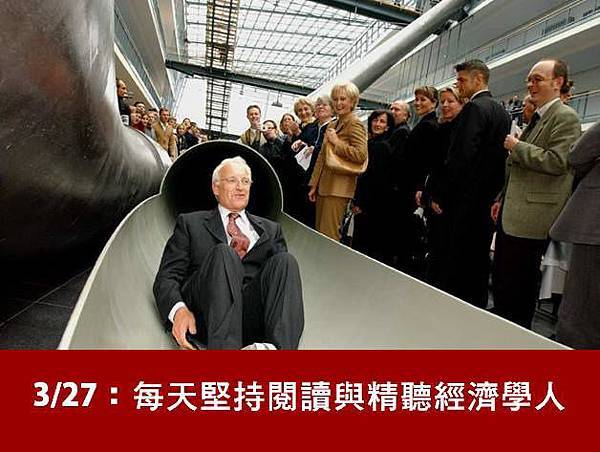 今日主題:German universities-- Between great and so-so 德國的大學--處於頂尖和一般之間
今日主題:German universities-- Between great and so-so 德國的大學--處於頂尖和一般之間
 康康精選GRE&GMAT會考的主題,堅持每天精讀一定會進步的哦!!
康康精選GRE&GMAT會考的主題,堅持每天精讀一定會進步的哦!! MP3音檔 (按右鍵可下載聽):喜歡的同學,幫忙推或按讚哦~~
MP3音檔 (按右鍵可下載聽):喜歡的同學,幫忙推或按讚哦~~
http://xia2.kekenet.com/Sound/2014/…/ecow1223_0837447pSa.mp3
 只有音檔怎夠,聽不懂地方,不用怕,康康幫你準備好中英文稿了:
只有音檔怎夠,聽不懂地方,不用怕,康康幫你準備好中英文稿了:
 中英文稿:
中英文稿:
German universities-- Between great and so-so
德國的大學--處於頂尖和一般之間
Not in the elite but improving, German universities bet on a middle way
雖非精英教育但一直在提高,德國的大學秉承著中庸之道
A GLANCE at the global rankings of universities suggests that nothing much has changed in recent years. MIT, Stanford, Cambridge, Oxford and a few other English-speaking campuses remain at the top, fighting it out with large endowments, celebrity professors and selective entry. By contrast, universities in Germany are nowhere near the top, even after several reforms, including an “excellence initiative” since 2005. Many students waste away in overflow rooms next to packed and stuffy lecture halls. Their best hope of seeing professors is through opera glasses.
關注下全球大學排名就會發現近年來排序並沒有什麼變化。以捐款數額,著名教授人數和錄取率為排名標準,麻省理工學院,史丹佛,劍橋,牛津以及其他一些說英 語的學校仍然高居榜首。相反,沒有一所德國的大學位列其中,甚至在政府採取了一系列措施之後仍是如此(包括2005年啟動的“精英計劃”)。學生宿舍擁擠 不堪,旁邊緊挨著就是著狹小、封閉的階梯教室,學生就在那裡虛度光陰。他們也就只能在通過望遠鏡看到教授。
But look more closely at the rankings, and change is more evident, thinks Günther Zupanc, a biology professor who has taught in Germany, Britain and Canada and is now at Boston's Northeastern University. Only a couple of German universities make it into the top 50: Heidelberg's Ruprecht-Karls-University and Munich's Ludwig-Maximilians-University usually lead the pack. Among the top 200, however, German universities have improved the most. Taken together, they have moved up by 250 places, Mr Zupanc calculates. Only Dutch universities have done better. America's, by contrast, have crashed: since 2011 they have collectively moved down by 692 places.
但是仔細觀察全球排名就發現變化很明顯:曾在德國、英國和加拿大任教過的生物學教授Günther Zupanc 現在波士頓的東北大學任教。排在全球前50的德國大學屈指可數:海德堡的魯普萊希特—卡爾大學和慕尼黑大學(全稱路德維希馬克西米利安慕尼黑大學 Ludwig Maximilian Muenchen Unitversitaet) 常獨領風騷。然而,在前200名的大學中,德國大學排名上升最快。Zupanc統計,總體來說上升了250個名次。其他國家中,只有荷蘭大學做的比德國更 好些。相比而言,美國大學的排名驟降:自2011年以來,共下降了692個名次。
If this trend continues, Mr Zupanc suggests, it could amount to a German Mittelweg (middle path) in higher education. At one extreme of the spectrum stand the Anglo-Saxons, who breed elite universities that most students either cannot get into or cannot pay for, but do less to nurture those lower in the rankings. At the other are socialist systems which make higher education free and access easy, at the cost of less differentiation among universities and overall mediocrity.
Zupanc教授表示,如果這種趨勢延續下去,可以認為德國高等教育在走中間路線。一端是以精英大學為主的安格魯撒克遜人,學生篩選標準嚴格及其學費高 昂,但這對名次下降也無任何幫助。另一端是社會主義國家,由於其大學更加看重平等且普遍較平庸,高等教育免費,入學門檻低。
Germany has tried both ends of this spectrum. In 1810 Wilhelm von Humboldt, a Prussian son of the enlightenment, founded the University of Berlin (now Humboldt University) on the then-revolutionary premise that professors and students should be partners in learning and that teaching and research were inseparable. His philosophy influenced university systems from America to Japan. And it led to more than a century of excellence at German universities, which for many years were the best in the world and produced thinkers from Hegel to Planck. This golden age was destroyed by the Nazis.
這兩種極端的教學模式德國都嘗試過。1810年出生於啟蒙時期的布魯士人威廉姆•馮•洪堡建立了柏林大學(現為洪堡大學),並提出了革命性的言論:教授和 學生在學習中應該是平等的伙伴關係且教學和科研不可分離。他的理念影響了從美國到日本的整個大學教育系統。這為德國大學帶來了一個世紀的傑出成就,長期處 於世界頂尖大學的行列並培養了包括黑格爾、普朗克在內的思想家。這段黃金時期終結於納粹的手中。
After 1945, West German universities revived the stuffy bits but without the excellence. Only the idolising of titles survived: even outside academia, Germans insist on being addressed with the full mouthful of “Herr Professor Doktor”. In the 1960s German students rebelled in vain. One slogan was “under the robes, the musty stink of 1,000 years”.
1945年後,西德的大學重建了這些擁擠的校舍但未保持優勢。只有那些象徵崇拜的稱號保留下來了,德國規定,即使在學術活動外,學生對老師也要用尊陳,如“教授、先生”等。20世紀60年代,德國學生反抗失敗,他們的一句口號是:“長袍下,是千年陳腐的老古董”。
With the country's first Social Democratic government in 1969, the emphasis shifted to widening access across social classes. Until a court ruling in 2005, German universities—which, like schools, are run by the states—were not allowed to charge tuition fees. Since then, seven states (all in the old West Germany) have tried, but all have given up after howls of outrage. The final holdouts, Bavaria and Lower Saxony, have recently dropped fees.
1969年德國第一個社會民主黨執政,把重點轉移到擴大社會各階層的學習機會。在2005年法律規定前,德國的大學—如各州州立的大學—是不允許收學費 的。自那以後,儘管有七個州(都處於舊西德地區)嘗試徵收學費,但迫於人們的憤怒而作罷。最後抵抗的學校,Bavaria和Lower Saxony,最近也放棄了收學費。
But Germany knows that higher education needs to improve. One push has, since 1999, come from the European Union's Bologna process, which has made the German system more compatible internationally, replacing traditional degrees with bachelors' and masters'. Germany has also allowed private universities and specialised colleges for engineers or business, with courses in English.
但是德國人明白高等教育需要改進。一個推動力就是1999年來自歐盟的波羅尼亞進程,促使德國教育系統與國際接軌並用碩士和博士學位代替了傳統學位。德國也准許私立大學和專業性大學為工程師或企業家開展英語授課模式。
Their success has been limited, however. The idea that alumni should donate money to their alma maters remains anathema. The assumption is that education is the government's business and should cost nothing. Only 6% of students go to private colleges.
然而,他們的成績很有限。畢業生應向母校捐贈的觀點仍然不被大眾接受。人們認為教育是政府的事情,不需要公眾花費。只有6%的學生選擇私立院校進行學習。
Even so, some progress has been made. The federal government and a research foundation have given money to 30 promising universities known tongue-in-cheek as an Ivy League in the making. The number of foreign students in Germany has surged to 300,000, putting Germany just behind America, Britain and Australia as a destination. If you can't get into Stanford, Germany is now another option.
即便如此,還是取得了一些成就。聯邦政府和一科研基金會向30所前景較好的大學撥款,比較好笑的是,其中竟然包括一所常春藤大學。德國的外國留學生人數激增至300,000,僅次於美國、英國和澳大利亞。如果你去不了史丹佛,那麼如今的德國大學也是個不錯的選擇。



 留言列表
留言列表
